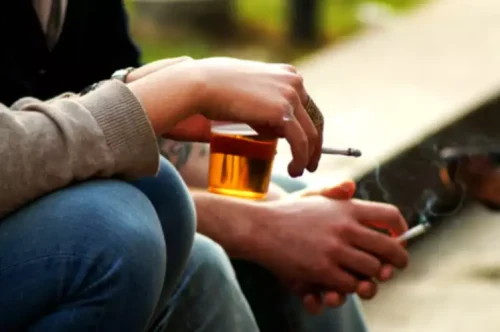
Discover the five steps to getting clean and sober, overcoming challenges, and embracing a new life of sobriety. Discover signs of addiction, treatment options, and support services for families. Learn the impacts, signs, prevention, and support for affected individuals and families. From prevention programs to health risks, learn how drugs are all around relationships and recovery in Ohio.
ADDICTION: A FAMILY DISEASE

Learn about treatment options, prevention, and government initiatives. Discover the significance of National Gratitude Month and unlock the power of gratitude for personal well-being and community impact. From acupuncture to chiropractic medicine, explore the path to wellness today. Explore the financial consequences of addiction, its impact on families, and resources for recovery in Kansas.
How to Develop Healthy Boundaries During Recovery

These sessions often utilize techniques to improve communication skills, where family members can learn to engage in honest dialogues about their feelings and past grievances. Engaging in open dialogues allows individuals to express feelings and set expectations, promoting understanding. Concentrate on nurturing relationships that support your sobriety and involve shared goals. Utilize improved communication skills to engage positively with those you aim to reconcile with. Seek opportunities to express gratitude towards those who have been there for you, reinforcing those bonds. Reach out for support from friends, family, or a therapist who can help you process the experience.
- Emotional intimacy grows when partners share their thoughts, fears, and hopes with one another.
- Relationship-building skills in recovery are a series of interpersonal abilities to restore and foster relationships impacted by addiction.
- Even in the most loving relationships, a bond that once felt strong can start to fray.
- A healthy relationship is in which both partners are separate entities, autonomous in their own right.
Why Understanding the Root Causes of Addiction is Crucial

Rebuilding these connections is crucial for an individual’s recovery journey as it provides support, accountability, motivation, and a sense of belonging. Rebuilding these connections is crucial for an individual’s recovery journey as it provides support, accountability, motivation, and a sense of belonging. Adding the stress of focusing on relationships could feel overwhelming, but it also provides an important opportunity to practice distress tolerance, emotion regulation, and coping skills. Relationships also benefit from healthy communication skills, validation, boundaries, and honesty—all of which are important for addiction recovery. Give yourself time for personal growth and independence and establish a foundation before entering a new relationship. Prioritize self-care, set healthy boundaries, and keep open communication to ensure you and your partner respect the recovery journey.
- Through family therapy, individuals can gain a better understanding of each other’s perspectives, improve communication skills, and learn how to effectively resolve conflicts.
- In addition to family therapy, support groups are also a valuable resource for relationship repair.
- Surrounding oneself with supportive individuals who reinforce healthy behavior can significantly reduce the risk of relapse.
- Addiction often leads to unhealthy patterns, and breaking free from those requires conscious effort.
- Discover “I Am Not Resistant” and explore the journey of vulnerability, healing, and personal empowerment.
- During treatment, a client will be able to learn effective ways to communicate with others and how to truly listen to what another person is saying.

As drug or alcohol addiction progresses, the substance becomes the main focus, leading to the Drug rehabilitation individual prioritizing substance abuse over relationships with family and friends. This results in neglect, where the addicted person becomes less emotionally and physically available. Effective communication is key to forming and maintaining healthy relationships. Practice active listening, express your thoughts and feelings honestly, and show genuine interest in the lives of others. Good communication can deepen connections and help you build a strong support network.
- In both addiction and recovery, someone may become so focused on individual processes that they neglect the interpersonal processes with others.
- This newfound ability allows for healthier relationships where individuals can establish clear limits without enabling or being codependent.
- Active addiction often causes individuals to prioritize substance abuse over their relationships, leading to emotional disconnection.
- It involves working with all members of the family unit to address underlying issues and develop healthier ways of interacting with one another.
- The little money left may not be enough to support the entire family, creating further stress and instability.
